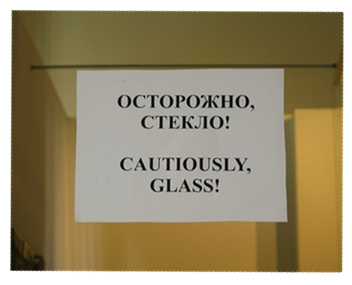Russia is an internet market that is on the up and one that UK ecommerce businesses should be taking advantage of.
With a predicted online population of 80m next year and an ecommerce market value of £20bn the year after that there are plenty of reasons for retailers to expand into Russia. However, these lures are mitigated by obstacles such as complicated logistics, different time-zones and an inherent mistrust of online payments.
The language barrier is one obstacle that on the face of it appears like a relatively simple problem to solve but yet remains the tripping point for a lot of businesses when it comes to international expansion.
As the UKs leading multilingual search agency we know our way around the worlds languages – to date we’ve managed campaigns in over 35, across 18 countries – and it’s indisputable that if you want to sell online in a foreign country you must ensure your content is in the language spoken within that region.
So whether its an entire website, a single landing page or PPC adverts, if you want to sell online to a Russian then your content needs to be in Russian. The best way to do this is have a Russian write it.
Unbelievably businesses still use automated translation tools to satisfy their foreign content needs, often to disastrous consequences.
No one will congratulate you for getting your translation correct, but they will point and laugh if you fail – so with that in mind, here are five terrible examples of Russian translation!
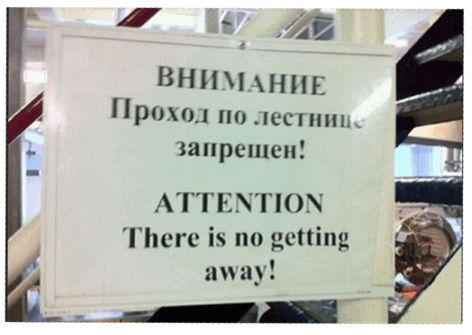
What it should say: Attention do not use the stairs
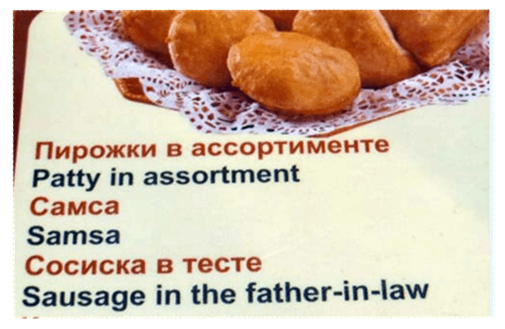
What it should say: Sausage roll
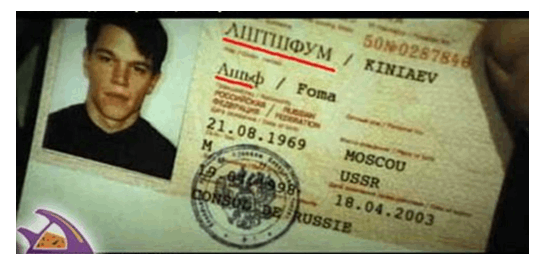
What it should say: The Russian letters on Jason Bournes passport make no sense whatsoever
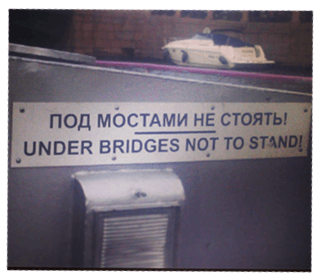
What it should say: Don’t stand under the bridges
What it should say: Caution glass
Russian is not the only language to lend itself to translation mistakes. Read how brands including Coca-Cola and KFC have fallen foul of poor translation in the past
